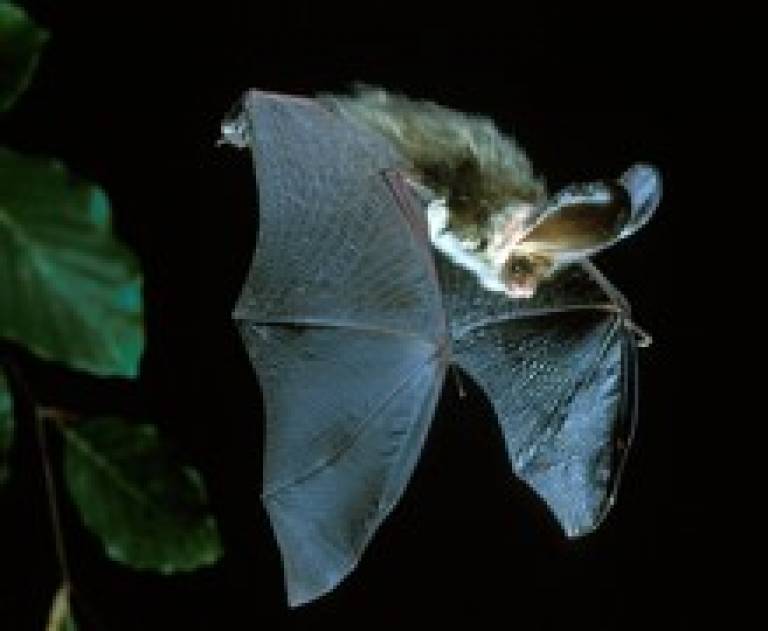Lunch Hour Lecture: Internet of Wild Things-using technology to understand and safeguard our planet
09 May 2019, 1:00 pm–2:00 pm

This Lunch Hour Lecture is organised in collaboration with UCL East.
This event is free.
Event Information
Open to
- All | UCL staff | UCL students | UCL alumni
Availability
- Yes
Cost
- Free
Organiser
-
Emma Hart
Location
-
Darwin Lecture Theatre044: Darwin BuildingGower StreetLondonWC1E 6BTUnited Kingdom
Book Now
Watch the Live Stream
About the Lecture
Wild nature and natural ecosystems are declining rapidly as humans use more of the earth’s resources and change climate patterns. Thanks to new sensor technologies such as animal movement tags, camera traps, passive acoustic sensors, IoT devices and new ways of analysing these data automatically with artificial intelligence, scientists have access to huge amounts of data about our changing environment and changing wildlife populations. We will review some of the latest technological advances in sensing, analysing, monitoring, and responding to wildlife population declines. We argue that although these technologies will help us to better understand the natural world and to further engage people with their environment, these could be disruptive and we discuss whether we are really ready for the Internet of Wild Things!
About The Future Living Institute and Nature Smart Centre
Technology and how it shapes our understanding of the planet will be central to the Future Living Institute at Pool Street West, UCL East. The Institute will examine the challenges that affect people’s lives – both locally and globally, today and in the future. Working collaboratively with local communities, solutions and technologies will be developed that will help build a fairer, sustainable world for people and the planet. Within the Future Living Institute, Nature-Smart Centre will focus on better understanding our dependencies on natural systems and how we can operate within safe and sustainable ecological limits.
About UCL East
UCL East is the largest ever single expansion of UCL since we were founded nearly 200 years ago.
UCL East will be a world-class campus on Queen Elizabeth Olympic Park, bringing together researchers, students, communities and partners to collaborate on solutions to the biggest, and most fundamental, challenges facing humanity – both today and in the future.
About the Speakers
Professor Kate Jones
Professor of Ecology and Biodiversity and Director of the Biodiversity Modelling Research Group at Centre for Biodiversity and Environmental Research (CBER)
Kate Jones is Professor of Ecology and Biodiversity, Director of the Biodiversity Modelling Research Group in the Centre for Biodiversity and Environmental Research (CBER), within the Research Department of Genetics, Evolution and Environment (GEE) at University College London. Kate is a world-leading biodiversity modeller known for her innovative, broad cross-disciplinary research in the linkages between global change, biodiversity and ecosystem services, winning the Philip Leverhulme Prize for outstanding contributions to Zoology in 2008. Kate holds scientific advisory positions for a number of national and international conservation charities and was the Chair of The Bat Conservation Trust from 2010-2015. She also directs a number of citizen science projects monitoring biodiversity globally.
Dr Duncan Wilson
Professor of Connected Environments at The Bartlett Centre for Advanced Spatial Analysis (CASA)
Duncan Wilson is Professor of Connected Environments in The Bartlett Centre for Advanced Spatial Analysis (CASA) at University College London and member of the Smart London Board. His research focuses on how emerging technologies such as connected sensors and cognitive computing can augment our understanding of the built and natural environment. A professional with over 20yrs of digital technology, R&D, innovation and strategy experience developed at individual contributor, team leader and management/executive levels. Primarily working at the interface between industry and academia in roles that challenge me to think about how digital technology can enhance automotive, retail and built environment sectors.
 Close
Close

